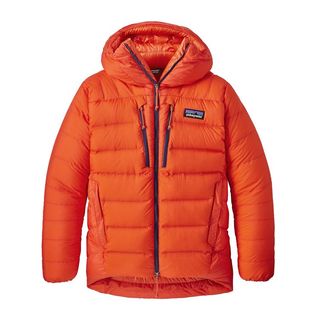Depression
Depression and Patagonia
Why the founder of Patagonia chooses action
Posted April 19, 2018

“I’m totally a pessimist. But you know, I’m a happy person. Because the cure for depression is action." So says Yvon Chouinard, founder of the outerwear company, Patagonia. This statement struck me with force. How could action cure depression?
My observation of those who tell me they are suffering from depression is that they do not feel they can do anything or wish to. Chouinard is talking about his depression about the serious neglect of caring for the environment one without hope at the moment. Is it a particular strength of Chouinard that he can take action even in this state. Or is he talking about being gloomy or sad which I consider a lesser state than the illness called depression. In either case, the ability to take some form of action is impressive.
When I am sad, especially when I feel hope is gone, it feels as though my energy has just been drained away. What is it at this kind of moment that energizes him to not just know he shouldtake action, but that he indeed takesaction with the intention that it will cure him as well.
Being blocked by something that appears insurmountable, what is your reaction to overcome your hopelessness? When your life is turned upside down by a death or some other tragedy, what is your reaction to right yourself again? When an unexpected opportunity pulls you toward it unrelentingly, what is your reaction so as to hold on until you have examined the unintended consequences? These kinds of situations are unpleasant and stressful in the moment. Yet, in each case, there is a decision with follow up action to take. And in each case, this is done in some level of discomfort.
Chouinard was bullied in school by his class mates because of his feminine sounding first name and his short stature. Was the ability to function, make decisions, and take the next action forged in the unpleasant situations of his youth? I think it was part of the preparation for how Chouinard approaches the unpleasantness of living in a threatened environment where the powers who could do something choose to not.
When I advise people on building their resilience, I ask them to decide the most important action they must do that day. I remind them it is not the top item on their to do list usually. The key is the most important action. It may mean finishing the proposal that has been sitting on your desk or it may mean taking the garbage out to relieve your partner of that chore. My clients think I'm a bit crazy. What could this possibly do with building their resilience? I remind them that resilience is called upon in moments of stress, discomfort, unpleasantness or even hopelessness. These are times when the executive network in our brain is stressed. When stressed, it doesn’t work very well. But what if you made that kind of decision every day? Over time, you observe from your own actions that you have the capacity to overcome stressful moments and still decide and act. Facing procrastination or simple distaste may not be the same as a death in the family, but they are real stresses. Making a decision under stress every day doesn’t make it easy. It just makes it something you have growing confidence in doing. Like any practice, when you see the evidence that you can do it, you are encouraged that you cando it in those more stressful moments.
My recommendation to decide the most important action for the day (I call it Selection) is an important practice in building resilience. And now, according to Chouinard, it’s also a cure.
References
Patagonia vs. Donald Trump by Rosecrans Baldwin, GQ, April 5, 2018


